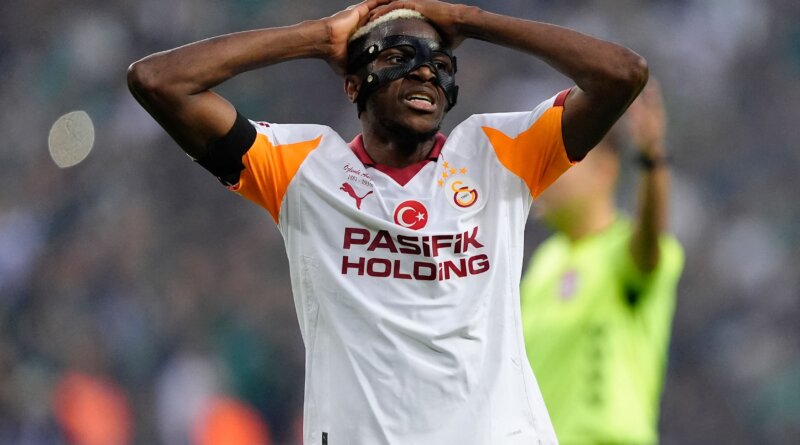Napoli Fraud Charges Rock Club Amid Osimhen, Manolas Transfer Scandal
Napoli fraud charges have sent shockwaves through Italian football as the club’s president, Aurelio De Laurentiis, faces indictment over alleged false accounting tied to the high-profile transfers of Victor Osimhen and Kostas Manolas. This legal crisis threatens not only Napoli’s financial standing but also its competitive position both in Serie A and Europe.
Napoli Fraud Charges: The Heart of the Scandal
The recent indictment of Napoli president Aurelio De Laurentiis by a Rome preliminary court has placed the club under intense scrutiny. Prosecutors allege that Napoli engaged in false accounting across 2019, 2020, and 2021, particularly focusing on the transfers of Kostas Manolas from Roma and Victor Osimhen from Lille. According to investigators, these deals involved highly inflated player valuations designed to artificially boost Napoli’s financial statements, a practice that could breach strict Italian financial reporting rules.
The charges further extend to Napoli CEO Andrea Chiavelli and the club itself, making this one of the most significant legal threats in De Laurentiis’ two-decade leadership. Prosecutors claim Napoli booked “fictitious profits,” thus violating fair financial practice. In their defense, Napoli’s legal team has fiercely argued that accounting standards were properly applied and that similar charges were previously dismissed in cases involving other Serie A clubs, notably Inter Milan.
Osimhen Transfer at the Centre of Napoli Fraud Charges
The €76 million transfer of Nigerian striker Victor Osimhen in 2020 is at the core of the Napoli fraud charges. In addition to Osimhen, the deal included four Napoli youth players—Oreste Karnezis, Claudio Manzi, Ciro Palmieri, and Luigi Liguori—collectively valued at nearly €20 million. Investigators suspect these valuations were artificially inflated to mask capital gains, echoing financial techniques that have resulted in severe penalties for other Italian clubs in recent years.
The investigation deepened after leaked testimony from Osimhen himself emerged. The forward described a confusing and emotionally taxing negotiation process following his father’s death. Osimhen claimed he did not see a draft of his contract, was presented only with a “pseudo-agreement,” and felt pressured into completing the move. He recounted being pushed into meetings, told that agreements had already been finalized, and even urged to travel to Naples immediately after his bereavement. Ultimately, his dissatisfaction with the process led him to change agents soon after the transfer.
The Manolas Transfer and the Fictitious Capital Gains Allegation
The second transfer central to the Napoli fraud charges is Kostas Manolas’s move from Roma to Napoli in 2019 for approximately €36 million. This transaction, paired with midfielder Amadou Diawara’s €21 million move in the opposite direction, allowed both clubs to record significant capital gains at a crucial financial reporting juncture. For Napoli, prosecutors argue the Manolas fee was set above true market value, casting doubt on the transaction’s legitimacy—especially after Manolas was sold to Olympiacos for just €2.5 million in 2022. This sudden drop in valuation has intensified suspicion that the initial accounting served financial interests rather than reflecting real market dynamics.
Napoli’s defense holds firm, insisting all dealings were above board, fully audited, and aligned with market practices. The club highlights technical reports supporting the accuracy of their records and points to the dismissal of similar charges against Inter as a precedent for their innocence.
Legal and Sporting Consequences for Napoli
The Napoli fraud charges have left the club facing both immediate and long-term uncertainty. With the first court hearing scheduled for December 2026, the legal proceedings are set to shadow Napoli throughout the next Serie A season and beyond. While the league has a history of responding swiftly to financial irregularities—most notably in the Juventus capital gains scandal—there are currently no plans for instant point deductions or sporting sanctions. Legal experts suggest such penalties would only follow if a sustained pattern of fraudulent behavior is proven in court.
Napoli’s official statement expressed both shock and confidence, emphasizing their reliance on independent assessments and reiterating a lack of financial advantage gained from the scrutinized deals. Nonetheless, the looming trial and continuing investigation could impact the club’s transfer strategies, financial planning, and even its player morale.
Serie A in the Spotlight Again
With Napoli fraud charges grabbing headlines, Serie A finds itself once more under the microscope regarding financial transparency and fair play. While similar scandals have rocked Italian football in recent decades, the depth of the current allegations signals a broader issue within the transfer market system. Clubs must now pay extra attention to accounting standards to avoid repeating past mistakes and to preserve the integrity of Italian football.
What’s Next for Napoli?
As Napoli prepares for a legal battle set to stretch well into 2026, fans and analysts alike are left questioning the club’s future. The uncertainty could impact performance on the pitch as well as business off it. For the latest updates and broader football coverage, visit for more news.
Opinion: Integrity and Transparency Must Prevail
This case underscores the importance of integrity and transparency in football’s financial dealings. Regardless of the outcome, it serves as a crucial reminder to all clubs that financial short-cuts can have lasting consequences, not only for individuals but for entire fan communities. It’s now up to Napoli to prove its innocence and demonstrate that the values of fair play extend far beyond the field.
Your global gateway to nonstop football coverage:
News Goal
Share this content:
